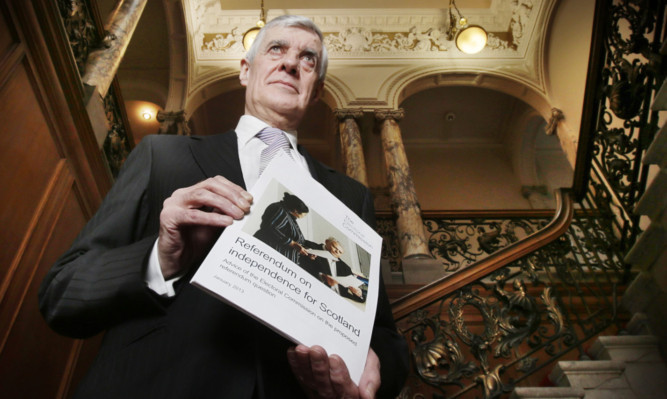The Scottish Government has agreed to change the question it will put to voters in next year’s independence referendum, after concerns were raised its preferred version could be biased towards a yes vote.
First Minister Alex Salmond had proposed to ask: “Do you agree that Scotland should be an independent country?” However, the independent elections watchdog, the Electoral Commission, said using the phrase “Do you agree” was commonly felt “to be biased towards a yes outcome and potentially leading people towards a yes vote”.
The Scottish Government has accepted the commission’s recommendation that the question should instead be: “Should Scotland be an independent country? Yes/No.”
Subject to the approval of the Scottish Parliament, this is now likely to be the question put to people in the referendum due to take place in autumn next year.
Deputy First Minister Nicola Sturgeon said the Scottish Government accepts all the commission’s recommendations on the question and the campaign spending limits.
The watchdog suggests higher spending limits than the SNP administration in Edinburgh proposed.
Ms Sturgeon said she was “particularly delighted with the conclusion the Electoral Commission has reached on the question”.
She said: “While its view is that our proposed question was clear, simple and easy to understand, I am nevertheless happy to accept their recommended change.
“Their advice is based on rigorous testing and we will submit the Electoral Commission’s recommended question, Should Scotland be an independent country?, to the Scottish Parliament as part of the Referendum Bill.”
Ms Sturgeon also gave her backing to the spending limits the commission has suggested, saying “they deliver a level playing field and will allow a fair and balanced debate on both sides”.
She said: “We have always said that Scotland’s referendum will be run to the highest international standards of fairness and transparency and the Electoral Commission plays a vital role in that.”
John McCormick, electoral commissioner for Scotland, said: “Any referendum question must be, and be seen to be, neutral.
“People told us that they felt the words ‘Do you agree’ could lead voters towards voting yes.”
The commission “rigorously tested the proposed question, speaking to a wide range of people across Scotland”, he said.
